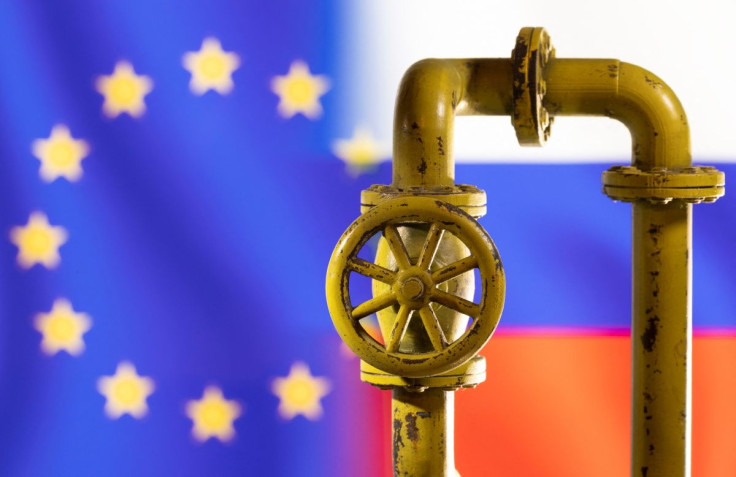EU May Clinch Summit Deal To Embargo Russian Oil Shipments

EU countries scrambled on Friday to reach a deal that would embargo seaborne deliveries of Russian oil but still allow deliveries by pipeline, a compromise to win over Hungary and unblock new sanctions against Moscow, officials said.
An agreement could be reached by envoys of European Union governments in Brussels on Sunday, in time for their leaders to endorse it at their May 30-31 summit, officials said, noting the urgency after almost a month of negotiations had failed.
Hungary has held up the EU's sixth package of sanctions against Russia over its invasion of Ukraine, It says halting Russian oil imports would be a body blow to its economy because the landlocked country cannot easily get oil from elsewhere.
That has delayed implementaton of other elements of the sanctions package: disconnecting Russia's biggest bank, Sberbank, from the SWIFT messaging system, banning Russian broadcasters from the EU and adding more people to a list of individuals whose assets are frozen and who cannot enter the EU.
Hungary's opposition to an oil embargo has threatened to turn next week's summit into a public relations disaster, exposing disunity within the EU, officials said.
"It would be humiliating not to discuss the sanctions at all because there is no agreement, or to remove the oil embargo part of the package completely only to push through the other elements," one EU official said.
"So the idea is to have an embargo on Russian oil and exempt the Russian Druzhba pipeline supplying Hungary only for some time, to give the (European) Commission and Hungary time to solve the problem," the official said, underlining that an agreement before the summit was far from guaranteed.
Hungary says it needs up to four years to shift away from Russian crude, requiring investments of about 750 million euros ($804 million) to upgrade refineries and expand a pipeline bringing oil from Croatia.
It says the longer-term conversion of its economy away from Russian oil could cost as much as 18 billion euros, and it is looking to the EU to provide the funds for such a transition.
The Druzhba pipeline runs through Slovakia, the Czech Republic and Hungary, the three landlocked EU countries that would have the biggest problem finding alternative oil supplies and which have voiced objections to an oil embargo.
According to the Brussels-based Bruegel think-tank, only a quarter of Russian oil bought by the 27-nation bloc, Russia's biggest oil customer, is delivered by pipeline.
Three-quarters of the Russian oil for Europe is delivered by tankers, so an embargo on seaborne deliveries would still have a massive impact on Russia's revenues from oil, reducing its ability to finance its war in Ukraine.
But it would also create competition problems in the EU, because Hungary, Slovakia and Czechia would get cheaper Russian oil for their refineries - which can sell their products all over the EU - while other countries' refineries would have to pay more for imported Brent crude.
Officials had no immediate solution to that problem yet.
($1 = 0.9327 euros)
© Copyright Thomson Reuters {{Year}}. All rights reserved.





















